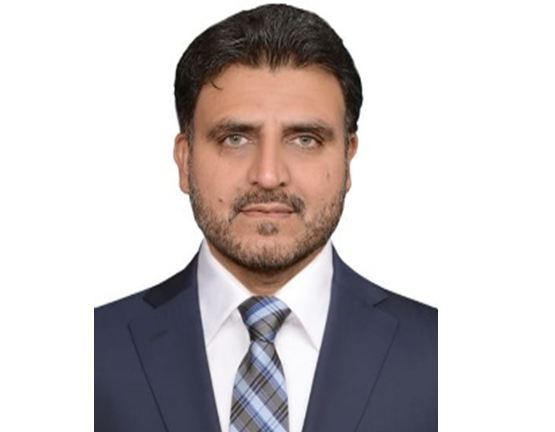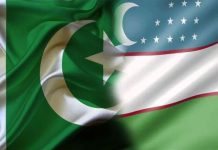Nasir Abbas Shirazi
Escalating to de-escalate is a strategy to take some appropriate action to avoid further action to end the conflict at least for the time being. It contains elements of capability, commitment, political will to act, and capacity to inflict unbearable loss to the adversary.
The goal of this escalation is not to defeat the enemy but to compel him to a situation where the enemy avoids further escalation. The Middle East has been a hot spot because of unending conflicts because of foreign interference and the interests of great powers. The rules of engagement in this region and anywhere else were simple; you do not mess with Americans. However, after the assassination of Iran’s IRGS’s commander Major General Qasem Suleimani’s assassination by Americans, Iran completely changed the rules of engagement. Ira responded militarily and targeted the main U.S. military base of Ain-ul-Asad in Iraq.
With this direct hit at American bases for the assassination of its General, Iran established four new rules and principles of engagement. First, Iran would respond militarily if attacked militarily. Second, Iran will respond directly as a state if attacked by any state. Third, Iran will not use any of its like-minded armed groups if attacked directly but will retaliate with state apparatus. Fourth, Iran’s military demonstrated by attacking the Ain Al Asad base which was used to assassinate its general that a response would be aimed at the location used to attack Iran or its interests.
The Iranian response resulted in the world fearing a U.S. retaliation to the direct attack at her base would start a spiral of incidents with a capacity to transform conflict into a full-scale regional war. Contrary to this, calm and restraint were witnessed even during the reign of hawkish President Trump. This time, the then-set rules by Iran were again being tested when Israel, violating international law, struck the Iranian embassy in Syria – Iran, re-establishing those four rules of engagement, retaliated directly within Israel from Iranian territory.
Despite the hype created by Israel, America, and its Western allies – France, Germany, and Britain – Iran crossed the threshold with Israel by creating an effective level of deterrence. Iran launched a well-coordinated, comprehensive attack with 300 projectiles including drones, cruise, and ballistic missiles. The level of escalation was so calculated that it only hit the military installations throughout Israeli-occupied territories including Tel Aviv, Golan Heights, Nevatm air base, areas close to Dimona nuclear facility, Eilat point, and other strategically important locations. It demonstrated a clear message that any attack on Iranian soil will not go unanswered. Iran with this retaliation again showed the capacity, capability, and will to retaliate and inflict serious damage.
It was a loud and clear message that if Israel retaliates and attacks continue, the response would be harsher, destructive, accurate, and painful. Israel used to play with the psychological pressure of its military might, its invincibility, powerful allies, and state-of-the-art missile defense system – all shattered with Iranian retaliation and this loss of prestige is Irreparable.
Following the retaliation, the U.S. distanced itself by declaring that the U.S. would not be part of any Israeli counterattack. The U.S. policymakers and analysts know how bad participating In Israel’s counterattack could go. The US has military bases all over the Middle East and, the U.S. naval fleet present in the Red Sea, Gulf, and other territorial waters – they all could come under direct Iranian attacks as Iran had proved this after Sulemani’s assassination.
One of the rules of engagement established by Iran was that it would attack the place of origin of attacks on Iran so the U.S. is unable to use any of its bases in the regional countries for a coordinated attack on Iran with Israel for those states would be the immediate target of Iranian retaliation. Moreover, the regional countries are after a rapprochement with Iran and are not willing to take any risk and face the situation like the Ain-ul-Asad in their homeland. Also, Europe is on the brink of an economic crunch and cannot afford disruption in the strategic energy and trade routes, mostly under Iranian control, causing unbearable economic consequences.
In the prevalent situation, Israel is isolated at the international level to act or react and is facing enormous domestic pressure – Netanyahu and his war cabinet are only after some safe passage following a humiliating defeat in Gaza and the fact that it is unable to attack the Iranian mainland keeping in mind the Iranian promise and capacity of inflicting crushing response. The political situation at home and in the region is also not favorable for Netanyahu and his war cabinet. They failed on the diplomatic front by no consensus at the UN in their favor. War on Gaza is about to complete 200 days and the people in the siege are still in high spirits, still fighting the aggression. Israel is witnessing clear failure as it has achieved zero goals spoken about before the start of the war in Gaza – it has created unsustainable domestic challenges for Netanyahu followed by international isolation caused by its brutalities in Gaza where Israel has killed more than 34 thousand Palestinians.
Iranian attacks were highly celebrated in the West Bank, Gaza, and other Palestinian areas providing a boost to their morale while simultaneously eradicating barging chips for Israel on the negotiation table. The situation is evident that Israel is not in the position to escalate further by attacking Iranian soil and possibilities for a cease-fire under the terms and conditions set by resistant movements like Hamas are growing. Iranian escalation is resulting in de-escalation and providing the environment for a successful ceasefire at least for the time being.
Nasir Abbas Shirazi is a senior lawyer, seasoned political analyst, and the president of Centre for Pakistan and Gulf Studies. He also serves as a visiting faculty member, teaching Middle Eastern and South Asian studies at different universities in Islamabad, Pakistan. His area of expertise lies ingeo-politics, geo-economics and geo strategic of the Middle Eastern region. He can be reached at [email protected]












